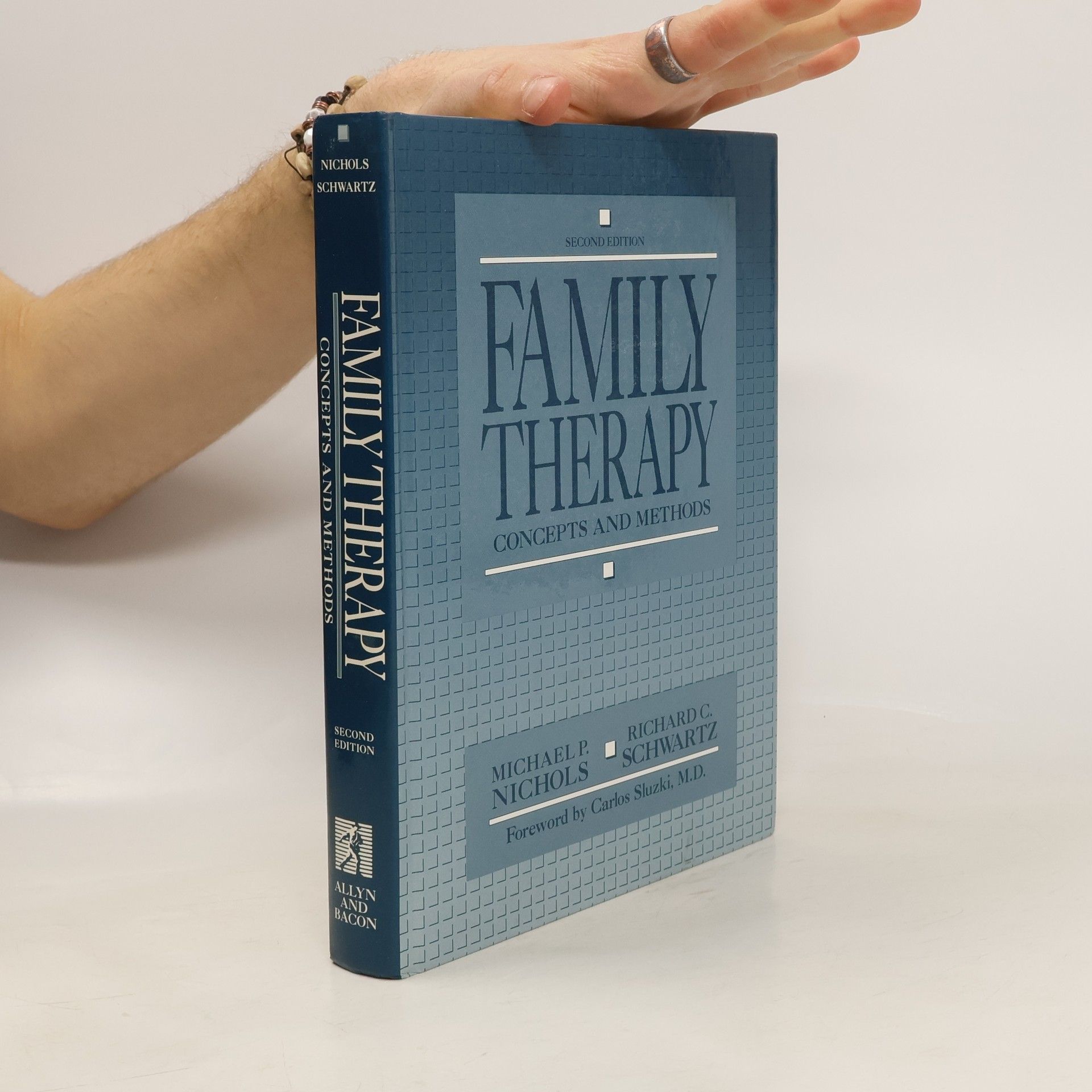Michael P. Nichols Book order (chronological)






Jak se přestat hádat s dětmi
- 244 pages
- 9 hours of reading
Jednou z příčin frustrace dnešních rodičů je, že když byli dětmi, udělali vždy, co jim dospělí řekli. Tak tomu prostě u dětí bylo. Nyní se dostali do konfliktů s dětmi, pro které to není samozřejmostí. Jen málo věcí popuzuje rodiče víc než neustálé diskutování ze strany dětí. Výroky „a musím?“ a „já nechci!“, které dělají z rodinného života bitevní pole, zná každý rodič.
Whether arguing takes the form of whining, heel-dragging, or embarrassing tantrums, what's a beleaguered parent to do? Trusted family therapist and bestselling author Dr. Michael P. Nichols has an answer that might surprise you. Using the simple, easy-to-follow, yet remarkably effective approach he's developed over 30 years of working with parents and children, you can learn to put an end to arguments by refusing to argue back. It's called responsive listening, and it means separating decision making from hearing what your children have to say. In five clear-cut steps, Dr. Nichols shows how you can stick to your guns about extra ice cream, coed sleepovers, or skating without a helmet without shooting down the ideas and feelings behind the demands. With the techniques of responsive listening, you can stop arguments in their tracks, get kids to open up, and demonstrate that you value their point of view - without getting caught up in a power struggle. Testing the limits is a natural part of growing up - but patenting dosen't have to be a battle-ground. You can cut down on arguments with your kids and the damage they do. You can gain more authority as a parent and build your children's trust and respect at the same time. This indispensable book shows how.
Die wiederentdeckte Kunst des Zuhörens
- 316 pages
- 12 hours of reading
»Du hörst mir nie wirklich zu« ist ein häufig gehörter Vorwurf in Streitgesprächen, der schmerzt, besonders von nahestehenden Personen. Michael Nichols untersucht, warum das Zuhören in unserer Zeit so selten geworden ist und wie sehr wir auf gelungene Kommunikation angewiesen sind. Anhand seiner jahrelangen therapeutischen Erfahrung erläutert er, wie wichtig es ist, gehört und verstanden zu werden, für unser Selbstwertgefühl und Lebensfreude. Mit amüsanten Fallbeispielen zeigt er, welche unbewussten Vorstellungen und Kindheitserfahrungen unser Gesprächsverhalten beeinflussen. Nichols analysiert die Gründe für Kommunikationsschwierigkeiten und bietet Strategien, um diese zu überwinden. Wirkliches Zuhören ist ein aktiver, erlernbarer Prozess, der Offenheit für die Einzigartigkeit des anderen erfordert und ein enormes Veränderungspotenzial birgt. Dies gilt für festgefahrene Beziehungen, sei es zwischen Partnern, Eltern und Kindern oder Freunden. Nichols lädt uns ein, unsere Sprechweise zu überdenken und eingefahrene Streit- und Gesprächsmuster zu durchbrechen, um den echten Kontakt zu finden, den wir so dringend benötigen.
The Lost Art of Listening
- 251 pages
- 9 hours of reading
We never outgrow our need to connect with others--to feel as though we are heard and understood. That is why a sympathetic ear is such a powerful force in human relationships -- and why the failure to be heard is so painful. Nothing hurts more that the sense that people close to us aren't really listening to what we have to say. Someone talks and someone else listens\m-\it sounds so simple that we take it for granted. But why do we often feel cut off when speaking to the people closest to us, family members, friends, or colleagues? What is it that keeps so many of us from really listening?Michael P. Nichols answers these questions and more in this ground-breaking exploration of why people don't hear one another. His book, an engaging guide to the secrets of listening and being listened to, is filled with vivid examples that clearly demonstrate easy-to-learn techniques for becoming a better listener. He also illustrates how empathic listening enables us to break through misunderstandings and conflict and to transform our personal and professional relationships.
Nur keine falsche Scham
- 384 pages
- 14 hours of reading


